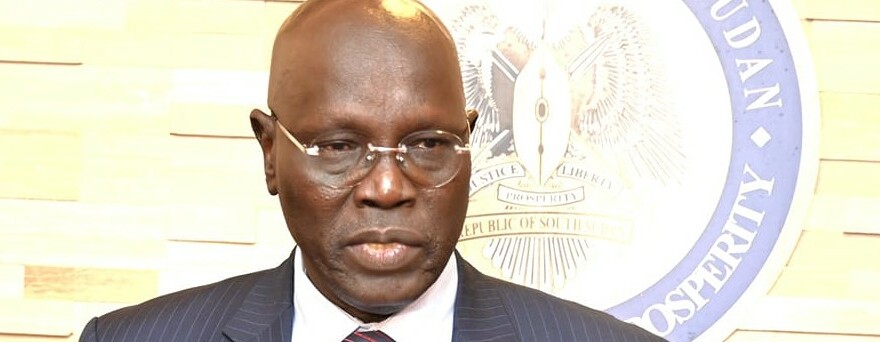South Sudan’s finance minister Dier Tong Ngor on Tuesday appeared before Parliament to answer questions from members on the country’s biting economic situation.
The South Sudanese pound has steadily dropped in value compared to the US dollar since the beginning of this month. This week, prices around Juba stood at about SSP 1005 for USD 1, triggering a sharp rise in prices of essential commodities in the market.
Addressing the lawmakers’ concerns, Minister Ngor assured the MPs that the 2023/2024 budget, which is expected to be tabled before Parliament in the coming few days, will address salary adjustment for civil servants and members of the organized forces.
“I will refer my answer on the issue of salary increment to the new budget because it will come in front of you here and be presented to you. I will be very open to discussing all those issues with you. Already that budget has been presented to the cabinet and is approved. Now we are remaining just with paperwork then send it to this August house,” he said.
On April salary delays, the finance minister blamed the matter on the ongoing conflict in neighbouring Sudan, which he said has affected crude oil sales, as many buys were afraid of the conflict.
“I want to inform the August House that since I took over office, I have been doing my best to make sure salaries are paid. And I think from August 2022 to April, I am sure our people have been receiving those salaries,” he said.
“The April salary delayed because of this unfortunate conflict in Sudan. As you know, all the oil is transported through Sudan. And what happened when we sold the cargo oil that time, there was scepticism from so many insurance companies, those who buy oil, that maybe they will give us money and not get their oil,” he added.
Ngor, however, said the ministry has managed to convince the companies and promised that the salaries will now be paid. He also admitted that South Sudan is affected most by the current inflation because it has less to export compared to imports, making the local currency lose value.
Commenting on delays in the implementation of the salary adjustment, Speaker Jemma Nunu Kumba said: “All the members of the Parliament have been threatened every day, especially by the members of the organized forces because there is wrong information going out there that, the salary increment reached to parliament and it refused to pass it.”
“This is completely wrong information because we have not received any budget with any salary increase in this Parliament. We started asking since last year’s budget. And we were even told that the increment will come as a supplementary budget, but it did not come,” she added.
The speaker underscored that the 2023/2024 budget should include a salary increment to cushion civil servants and soldiers.
Michael Ayuen Johnson, the chairperson of the parliamentary committee on defense, said: “We cannot afford to be always deceived. And know that the welfare of our organized forces is key to the development and security of this country. Our country is under threat from our neighbours where the land of this country is being taken away from us.”
“There are other threats and we cannot address them when our security personnel are hungry, when our security forces are dying of sicknesses, and when our security is disorganized,” he concludes.




